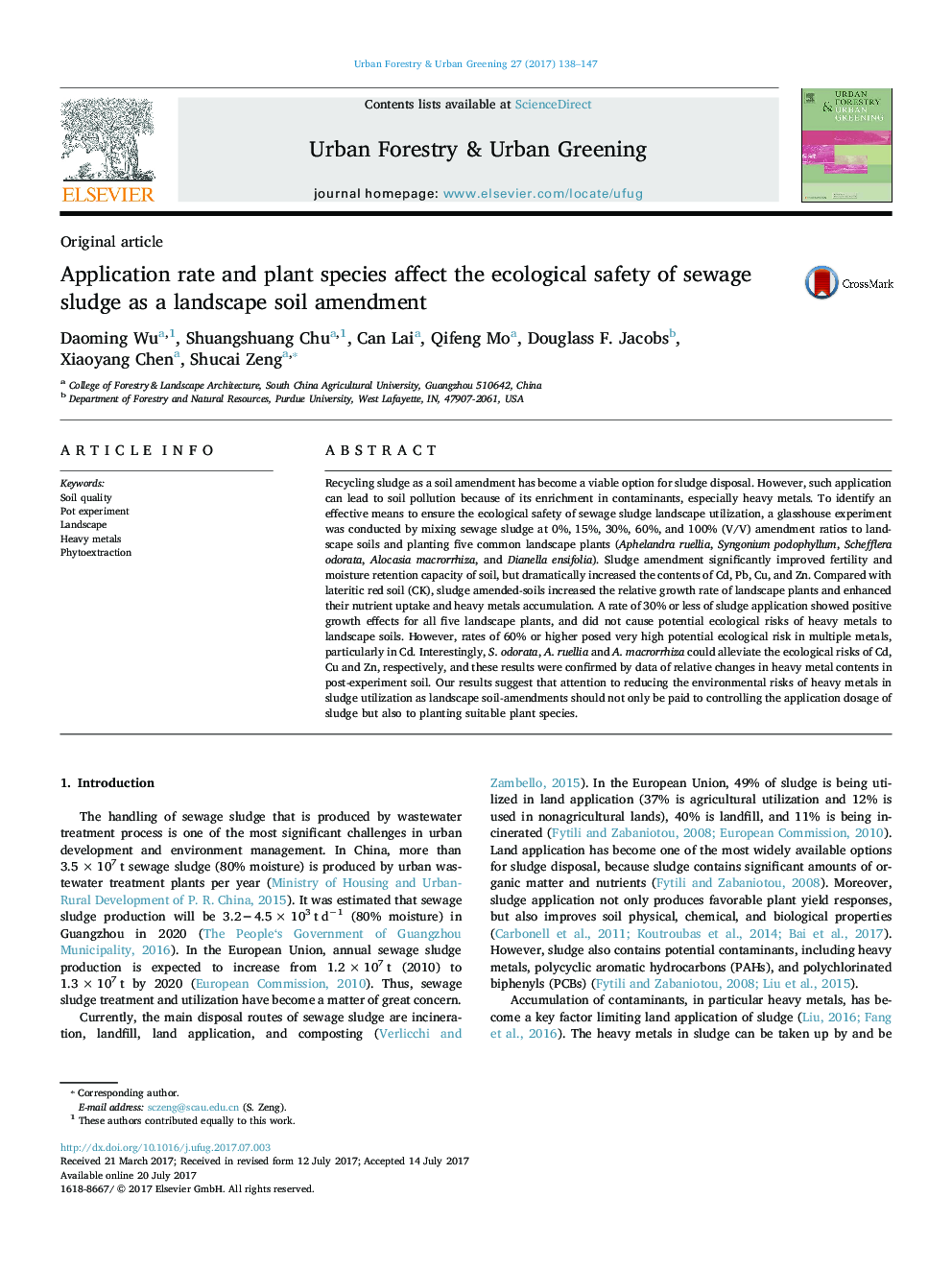| کد مقاله | کد نشریه | سال انتشار | مقاله انگلیسی | نسخه تمام متن |
|---|---|---|---|---|
| 6461713 | 1421863 | 2017 | 10 صفحه PDF | دانلود رایگان |
- Sewage sludge could be applied to improving landscape soils quality.
- Sludge application at a rate of 30% did not cause ecological risks of HMs to landscape soils.
- Growing S. odorata, A. ruellia and A. macrorrhiza alleviated the ecological risks of Cd, Cu and Zn in sludge, respectively.
Recycling sludge as a soil amendment has become a viable option for sludge disposal. However, such application can lead to soil pollution because of its enrichment in contaminants, especially heavy metals. To identify an effective means to ensure the ecological safety of sewage sludge landscape utilization, a glasshouse experiment was conducted by mixing sewage sludge at 0%, 15%, 30%, 60%, and 100% (V/V) amendment ratios to landscape soils and planting five common landscape plants (Aphelandra ruellia, Syngonium podophyllum, Schefflera odorata, Alocasia macrorrhiza, and Dianella ensifolia). Sludge amendment significantly improved fertility and moisture retention capacity of soil, but dramatically increased the contents of Cd, Pb, Cu, and Zn. Compared with lateritic red soil (CK), sludge amended-soils increased the relative growth rate of landscape plants and enhanced their nutrient uptake and heavy metals accumulation. A rate of 30% or less of sludge application showed positive growth effects for all five landscape plants, and did not cause potential ecological risks of heavy metals to landscape soils. However, rates of 60% or higher posed very high potential ecological risk in multiple metals, particularly in Cd. Interestingly, S. odorata, A. ruellia and A. macrorrhiza could alleviate the ecological risks of Cd, Cu and Zn, respectively, and these results were confirmed by data of relative changes in heavy metal contents in post-experiment soil. Our results suggest that attention to reducing the environmental risks of heavy metals in sludge utilization as landscape soil-amendments should not only be paid to controlling the application dosage of sludge but also to planting suitable plant species.
Journal: Urban Forestry & Urban Greening - Volume 27, October 2017, Pages 138-147
